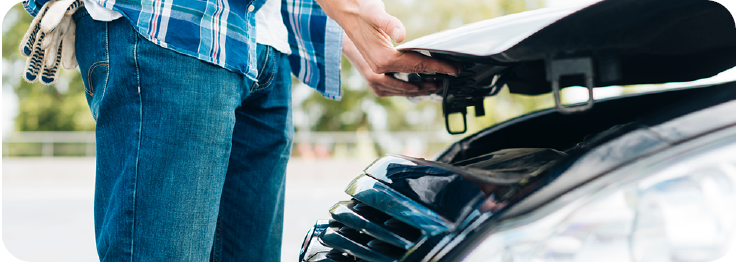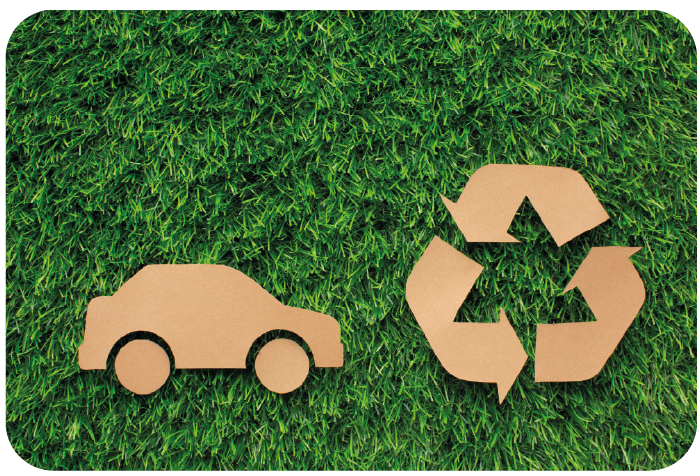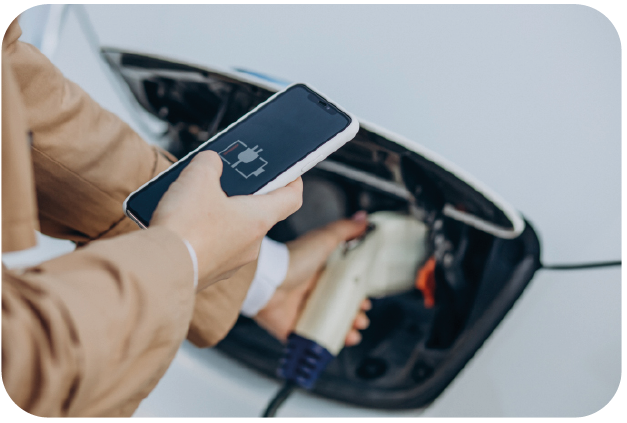Recycling electric vehicle batteries : what are the issues, solutions and prospects?
Blog
Posted on 24.04.2024

This year, sales of electric vehicles have once again broken records, clearly illustrating the rise of electric mobility with the introduction of new, more environmentally-friendly vehicles. Nevertheless, lithium batteries raise concerns about their overall ecological impact. Their manufacture requires rare materials and involves polluting production processes. As a result, battery recycling is emerging as a critical issue for the sustainable development of electric vehicles.
The challenge of recycling electric vehicle batteries
The electric mobility market is currently experiencing strong growth, thanks to a more diversified range, increased autonomy and more affordable purchase prices. More and more drivers are expressing a desire to change their mobility habits to adopt more environmentally-friendly practices. Financial incentives introduced by governments are also helping to stimulate the purchase of electric vehicles.At present, it is estimated that there are more than 650,000 electric cars on the road in France. Despite the challenges facing the automotive industry, the electric vehicle market remains buoyant. The proportion of drivers opting for these vehicles is set to continue rising in the years ahead. As a result, a considerable number of batteries will need to be recycled in the future. By 2027, the total weight to be recycled on the market is estimated at over 50,000 tonnes.
Manufacturing and environmental concerns: recycling as a response
The manufacture of batteries raises environmental concerns, particularly with regard to pollution. The processes involved in extracting and transforming the metals needed to manufacture batteries, such as lithium, cobalt and nickel, can have harmful impacts on the environment and human health. Mining can contaminate soil, water and air with toxic chemicals, while consuming large quantities of water and energy. In addition, some regions of the world where metals are mined face social problems. Faced with these challenges, the battery industry is seeking to improve extraction and production practices by focusing on responsible sourcing and more sustainable technologies. These initiatives include recycling, which is undoubtedly the best way of meeting the constant need for materials without resorting to massive extraction.
Process for extracting materials from used batteries
When the battery shows signs of significant deterioration, has been recharged for a long time or has reached the end of its life, it is sent for specific recycling. Legislation requires players to recycle at least 50% of the total weight of a battery. To do this, the battery is completely dismantled in a recycling plant, where different techniques are used to separate the various components.They contain rare metals such as cobalt, nickel, lithium and manganese. Extracting these materials requires a considerable amount of energy, which underlines the crucial importance of recycling. In general, these metals are crushed and recovered in powder or ingot form. Pyrometallurgy is one of the techniques used, involving the melting down of ferrous materials to recover and purify them.
Where are electric car lithium-ion batteries recycled in France?
In addition, the National Register of Batteries and Accumulators, managed by ADEME (Agence de l'environnement et de la maîtrise de l'énergie), lists all the operations carried out by approved recycling organisations. At present, specialist companies estimate that they can recycle between 70% and 90% of the total weight of a battery.
Although this rate is not yet 100%, it far exceeds the legal standard. What's more, technology is evolving rapidly, which means that we could be seeing fully recyclable batteries in the near future!
What are the legal requirements for recycling batteries?
- By 2025, it will be mandatory to declare recycled content.
- By 2031, they will have to contain 16% cobalt, 6% lithium and nickel.
- In 2036, these figures will rise to 26% for cobalt, 12% for lithium and 15% for nickel.
These measures, combined with the obligation to use recycled raw materials in the manufacture of new batteries, will help to reduce the carbon footprint, which accounts for half the environmental impact of the manufacture of an electric car.
*Final figures for the regulation adopted by the European Parliament on 14 June 2023.
The emergence of new businesses
In response to this growing requirement, specialised channels are being set up to meet demand. Some players are already on the market to recycle certain components of lithium batteries. However, they still need to increase their capacity, a need that has been highlighted at European level. So it was decided to pool efforts between European countries. Recently, several countries, notably France and Germany, joined forces to form a "Battery Airbus". The aim of this initiative is to create a European giant that will not only produce cleaner batteries, but also develop recycling capacity.
The first lithium-ion battery recycling plant is due to open in summer 2024 near Arras in France. It has developed its own recycling process, which involves dismantling the batteries, recovering the copper, plastic and other solvents, then crushing them to obtain "black mass". This is a black powder containing lithium, nickel and cobalt. These materials can then be used to manufacture new electric batteries. The company plans to open its first pre-treatment line by the end of the year. Once up and running, the plant is expected to recycle more than 30,000 tonnes of lithium-ion batteries a year.
In Germany, Europe's first battery recycling plant is opening in Magdeburg. The plant has the capacity to process 10,000 tonnes of materials, with the first main line currently in operation and the other 10 planned for later. In Magdeburg, it is not the actual reprocessing of battery raw materials that takes place, but an important preliminary stage: in the 'spokes', used batteries and production waste are transformed into black mass, a mixture of active battery materials - the other materials are sorted in the process and also reused. From the black mass, the respective raw materials are then extracted in the "hubs" using hydrometallurgical processes, which can then be transformed into new batteries.

How can batteries be recycled?
Depending on the condition of the battery, there are two recycling options. The first involves giving it a second life by reusing it, while the second involves dismantling and recycling it.If the battery still has sufficient capacity (over 60%), it can be reconditioned for installation in a new vehicle. In this case, the recycling process is relatively simple. However, if its capacity is limited, it can be dismantled and adapted to power a lighter vehicle, such as a two-wheeler or a licence-free car.
What happens to non-reusable batteries in a vehicle?